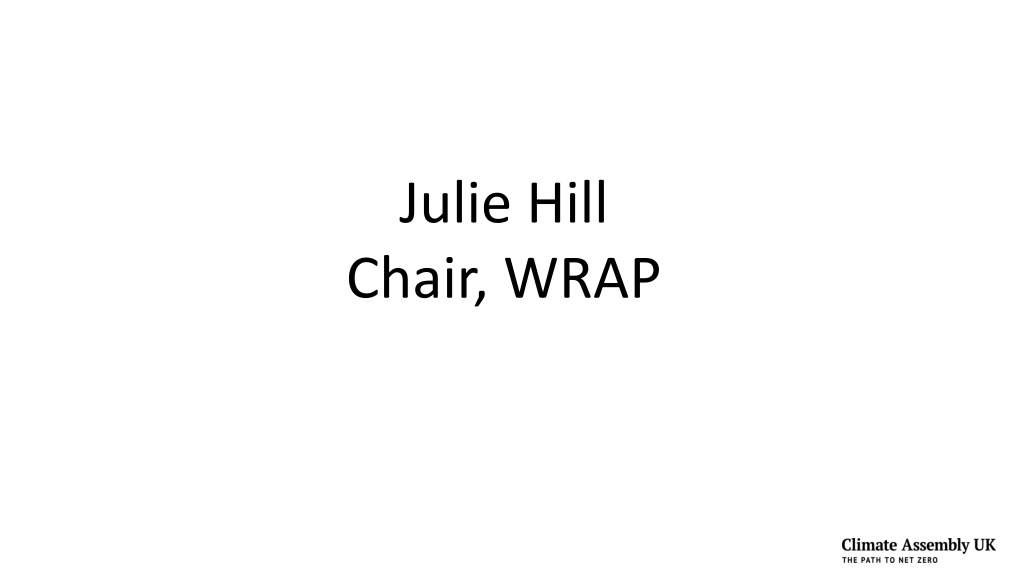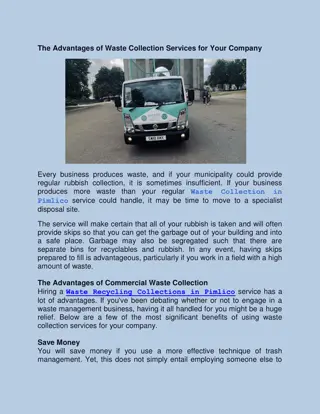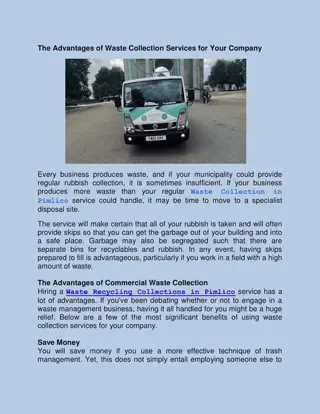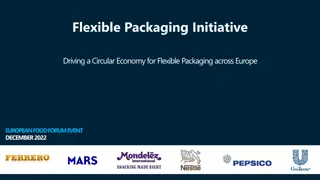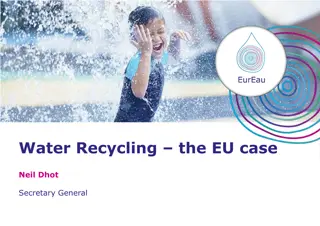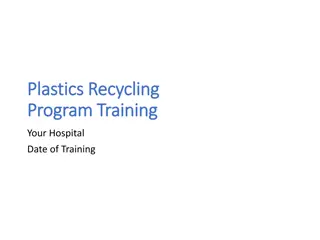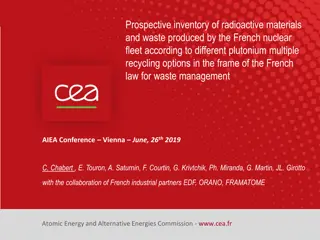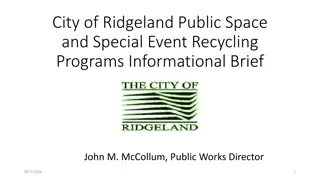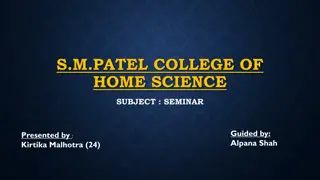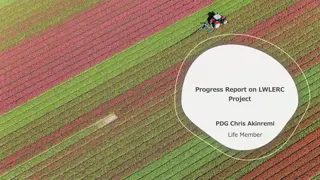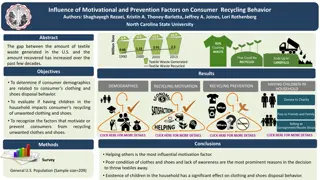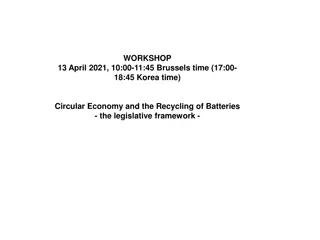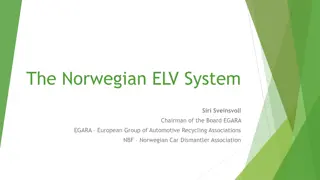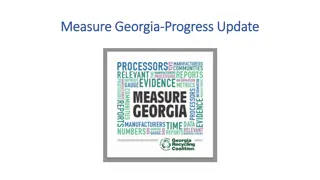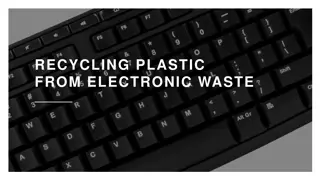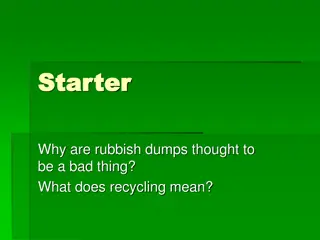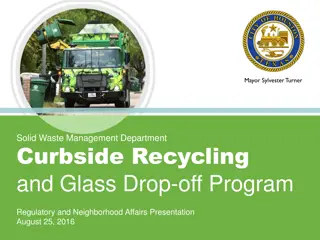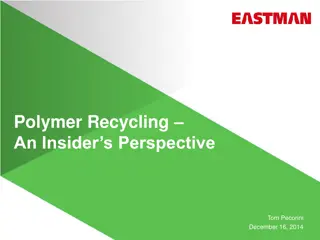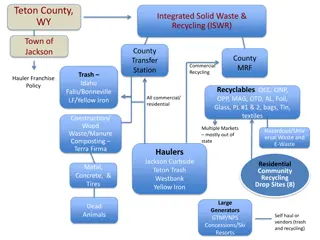Recycling Benefits and Challenges: A Comprehensive Overview
Recycling plays a crucial role in reducing greenhouse gas emissions, conserving water, and saving materials. However, there are challenges such as confusing sorting processes, space constraints, and energy consumption. While recycling helps minimize waste sent to landfills, it's essential to prioritize re-use and reduce consumption. Explore the potential carbon savings and environmental impacts of recycling in this informative guide.
Download Presentation

Please find below an Image/Link to download the presentation.
The content on the website is provided AS IS for your information and personal use only. It may not be sold, licensed, or shared on other websites without obtaining consent from the author. Download presentation by click this link. If you encounter any issues during the download, it is possible that the publisher has removed the file from their server.
E N D
Presentation Transcript
Julie Hill Chair, WRAP
About half UK waste is recycled 223,000,000 tonnes 18,500,000 X Household = Industrial Etc.
Destinations of household waste from each country Local Authority Collected Waste 2018/19 0% 10% 20% 30% 40% 50% 60% 70% 80% 90% 100% England Wales Scotland* Northern Ireland Landfill Recycled/composted EfW Other *Household waste
We re-use or recycle a small amount of what we consume
What can be achieved with recycling Savesgreenhouse gas emissions, water and materials if recycling replaces buying brand new products. Recycling avoidsthe bad effects of biodegradable waste (stuff that rots - food and garden rubbish) which breaks down in landfill to produce methane, a greenhouse gas. Saves money for local authorities the government has made it more expensive to send waste to landfill than to recycle it, and sometimes money is earned from selling the recycled materials as well.
Possible carbon savings from recycling Recycling could save around 3.5 million tonnes of CO2 equivalent per year Sending all our food waste to anaerobic digestion could save another half a million tonnes. Together, equivalent to around 10% of annual aviation emissions. We can recycle: Paper or card Glass Steel Aluminium Mixed plastics
Are there downsides to recycling? Confusing to sort but that could be cured by more consistent collection systems and better labeling Have to find space in the household/office/factory Takes some energy (transport, processing, as well as our personal energy!) but not as much as it saves Concerns about sending some of it to other countries (plastic) Water might waste water if we don t use already dirty water to clean our containers Most important: not as good at saving carbon, water and materials as re-use, or reducing consumption in the first place
What can be achieved with re-use compared to recycling Greenhouse gases saving per tonne electricals reused, vs the saving per tonne recycled. Re-use Recycling
And so much better not to waste... Achieving the global goal of halving food waste by 2030 could save 6 million tonnes of CO2 equivalent per year in the UK - 15% of aviation emissions.
Downsides of thermal Energy from Waste Saves less energy overall than re-use or recycling. Loses potentially valuable materials ones that are not currently practical or economic to recycle. People don t like living near the plants. There are more efficient ways to generate heat and electricity. However: It may be the only way to recover any value from some mixed, messy wastes that are hard to recycle. And the only way to avoid landfill while we get better at reducing/ re-using/recycling.
Summary pros and cons of approaches Greenhouse gases Water Keeping valuable materials Local impact Saves money Less stuff/less food waste Keep longer or send for re-use Send for recycling (dry) Send for recycling (biodegradable) Send for thermal Energy from Waste Send to landfill Dependent on material N/A
Circular Economy Just means less stuff, less waste and keeping things in use
If the benefits of the circular economy are so great, why isn t this going to happen anyway? Many people see the sense of the idea of being circular but: Many different actions are required. There are the same issues as for any new business: attracting finance and convincing customers. We may all perceive reducing stuff as reducing quality of life. Businesses may see reducing stuff as reducing income and market share, compared to their competitors. Those who benefit may not be the same as those who bear costs.
